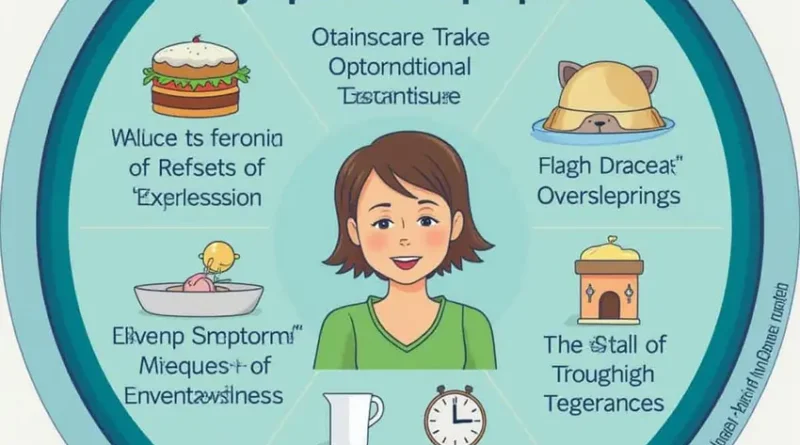Symptoms of Depression and Coping Strategies
Depression is a mental health condition that affects millions of individuals worldwide. It is often characterized by persistent feelings of sadness, hopelessness, and a lack of interest or pleasure in activities once enjoyed. Understanding the symptoms of depression is a crucial step towards seeking help and implementing effective coping strategies.
Common symptoms of depression include:
- Persistent Sadness: A continuous feeling of sadness or low mood that doesn’t seem to improve.
- Loss of Interest: A lack of interest or pleasure in activities that were previously enjoyable, including hobbies, socializing, or work.
- Changes in Appetite: Significant weight loss or gain, and changes in eating habits, such as eating too much or too little.
- Sleep Disturbances: Insomnia or oversleeping are significant indicators of depression. Individuals may find it hard to fall asleep or may wake up frequently during the night.
- Fatigue: A pervasive sense of exhaustion or lack of energy, even after a full night’s sleep.
- Feelings of Worthlessness: Low self-esteem or feelings of guilt for reasons that may not be rational.
- Difficulties Concentrating: Trouble focusing, making decisions, or remembering things are common cognitive symptoms of depression.
- Physical Symptoms: Unexplained aches or pains, headaches, or digestive issues that do not improve with treatment.
- Thoughts of Death or Suicide: Recurrent thoughts about death or suicide. This is a critical symptom that requires immediate attention.
If you or someone you know is experiencing thoughts of self-harm or suicide, it is vital to seek help immediately from a medical professional or a helpline.
Understanding the symptoms is one part of the equation; the next step is exploring coping strategies to manage these symptoms. Here are several strategies that can aid in coping with depression:
1. Professional Help
Seeking help from a mental health professional is one of the most effective ways to combat depression. A therapist can help individuals identify the root causes of their depression and develop coping strategies. Cognitive Behavioral Therapy (CBT), for instance, is a well-researched therapy that focuses on changing negative thought patterns.
2. Medication
In some cases, medications such as antidepressants may be prescribed to help manage symptoms. It is crucial to discuss the potential benefits and side effects with a healthcare provider to determine if medication is the right choice for you.
3. Lifestyle Changes
Making healthy lifestyle choices can have a significant impact on mental health. Regular exercise is known to release endorphins, which can help lift mood. Additionally, maintaining a balanced diet, staying hydrated, and getting enough sleep can contribute to overall well-being.
4. Stay Connected
Isolation can exacerbate feelings of depression, so it’s essential to stay connected with friends and family. Sharing feelings with trusted loved ones can help lighten the emotional load and provide a support system that is crucial during tough times.
5. Mindfulness and Relaxation Techniques
Practicing mindfulness or relaxation techniques such as yoga, meditation, or deep breathing exercises can help reduce stress and promote emotional health. These practices encourage individuals to stay present and help combat negative thinking patterns that can accompany depression.
6. Engage in Activities
It can be tough to find motivation when you’re feeling down, but engaging in activities—even small ones—can help. Try to push yourself to do things you used to enjoy, or explore new hobbies that spark your interest. Even simple tasks like going for a walk or doodling can provide a sense of accomplishment.
7. Set Realistic Goals
Setting small, achievable goals can provide direction and purpose. Whether it’s making your bed each morning or cooking a new recipe, accomplishing tasks can gradually build up your sense of self-worth.
8. Limit Alcohol and Substance Use
Avoiding alcohol and drugs is crucial as these substances can worsen depression symptoms and make recovery more challenging. Engaging with healthy coping mechanisms will yield better results than turning to substances that may provide temporary relief but long-term harm.
In summary, depression is a serious mental health condition that requires attention and care. By recognizing the symptoms and employing coping strategies such as professional help, lifestyle changes, and social support, individuals can find paths toward emotional healing and well-being. Remember, it is always okay to ask for help, and taking that first step can make all the difference.

